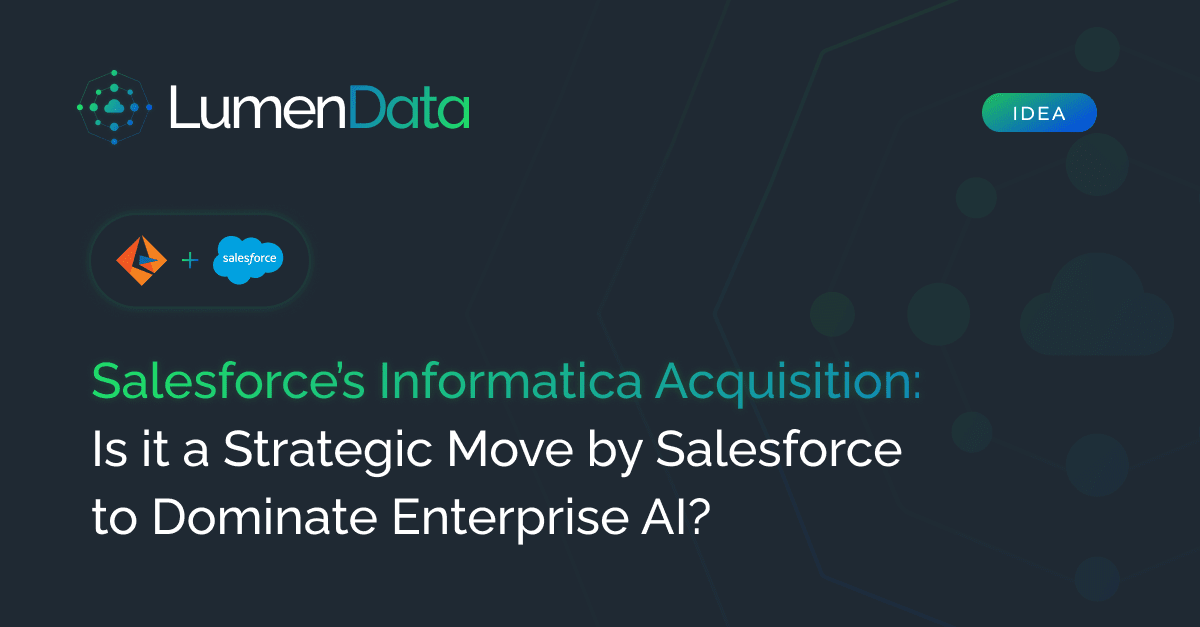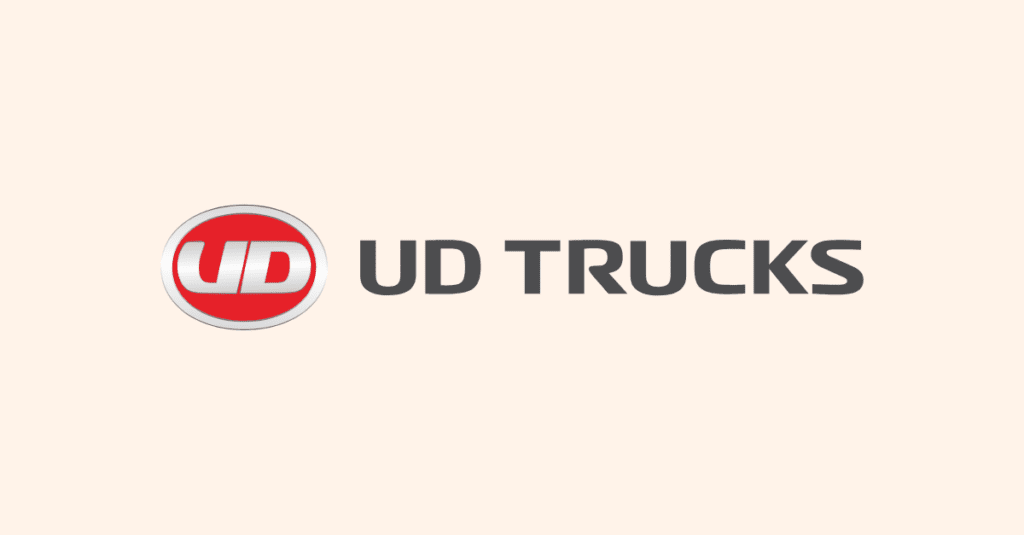Share this on:
What You'll Learn
LumenData’s VP of Architecture, Vinayan Valappil, provides a compelling and valuable perspective on the recent Salesforce – Informatica acquisition news. Is it a calculative move by Salesforce to broaden its focus on enterprise AI? What will Salesforce gain from the acquisition deal? Learn here.
Understanding the Why Behind Salesforce’s Informatica Acquisition
Over the past year, AI has transitioned from a niche experiment to a critical component of enterprise strategy. Enterprises are expected to do more with AI, not just experiment with it.
However, the effectiveness and success of AI platforms depends on a single, important thing. It’s not merely about the model. It’s about the data – the quality, governance, and integration of data.
And that’s why Salesforce’s May 27, 2025, announcement to acquire Informatica in a $8 billion all-cash transaction makes sense. It seems like a strategic move to secure the infrastructure that makes enterprise AI actually work.
Salesforce isn’t buying a product. It’s buying data infrastructure for the Agentic Era. It is not just a tech deal. It is a platform strategy.
Vinayan Valappil, VP of Architecture at LumenData
Why Informatica and Why Now?
Informatica is no ordinary company. It is the leader in enterprise AI-powered cloud data management. As per the Informatica Q1 2025 Report, the company handles 119+ trillion cloud transactions every month and reported around 2,475 cloud subscription ARR customers at the end of March 31, 2025.
With this acquisition, Salesforce gains:
Metadata Intelligence
To classify, trace, and understand data across fragmented systems
Data Governance
To ensure security, privacy, & meet regulatory standards such as HIPAA, SOC2, GDPR
Multi-Cloud Integration
To bridge fragmented data in AWS, Azure, Snowflake, and beyond
Lineage Tracking
To provide AI agents context, not just access
In a nutshell, we could say that Informatica brings the data plumbing Salesforce requires to scale AI at an enterprise level.
Connecting the Dots: Slack. MuleSoft. Tableau. And now Informatica
It seems Salesforce is quietly building something bigger. We could imagine it as a unified, agentic AI enterprise.
Slack provided Salesforce with an interface for collaboration. MuleSoft brought the API integration layer. Tableau offered analytics and data storytelling. And now Informatica delivers the data trust and control layer.
All these together can be the foundation of Agentforce – Salesforce’s AI operating platform.
Let’s be honest. Without clean, connected, and governed data, AI falls apart. Salesforce is not just buying capability. The company is buying credibility in AI-driven implementations
Vinayan Valappil, VP of Architecture at LumenData
Saleforce’s Strategic Shift: The Bigger Picture
This is the first major acquisition since Salesforce tightened its belt post-Slack. And please note that the timing is no coincidence.
Check out the figures below from Salesforce’s Q1 FY2025 results:
Revenue hit $9.8 billion, and is up 8% YoY
Data Cloud & AI annual recurring revenue is over $1 billion, growing 120% YoY
Salesforce’s Data Cloud ingested 22 trillion records, growing 175% YoY
The numbers signify the traction that Salesforce has built around AI. They also hint at what’s needed next, that is, enterprise-grade data reliability.
Marc Benioff, CEO – Salesforce, isn’t chasing the hype. He’s quietly positioning Salesforce to own and lead the AI operating stack — from CRM and analytics to secure AI-native execution. He’s doing it while others are still fine-tuning copilots. The move also signals the return of Salesforce as a platform consolidator
Vinayan Valappil, VP of Architecture at LumenData
Wrapping Up
The definitive agreement between Salesforce and Informatica emphasizes the fact the next generation of AI is not entirely about generative models. It is about governed, compliant, and contextual execution. Any organization’s AI journey will increasingly depend on how its data ecosystem is stitched together.
About LumenData:
LumenData is a leading provider of Enterprise Data Management, Cloud and Analytics solutions and helps businesses handle data silos, discover their potential, and prepare for end-to-end digital transformation. Founded in 2008, the company is headquartered in Santa Clara, California, with locations in India.
With 150+ Technical and Functional Consultants, LumenData forms strong client partnerships to drive high-quality outcomes. Their work across multiple industries and with prestigious clients like Versant Health, Boston Consulting Group, FDA, Department of Labor, Kroger, Nissan, Autodesk, Bayer, Bausch & Lomb, Citibank, Credit Suisse, Cummins, Gilead, HP, Nintendo, PC Connection, Starbucks, University of Colorado, Weight Watchers, KAO, HealthEdge, Amylyx, Brinks, Clara Analytics, and Royal Caribbean Group, speaks to their capabilities.
For media inquiries, please contact: marketing@lumendata.com.
Authors

VP of Architecture

Content Writer Executive





